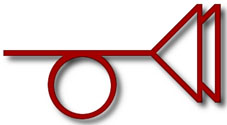 New Thomas Pynchon novel to be released
New Thomas Pynchon novel to be released
Mysterious author’s first novel in almost a decade comes out in December
NEW YORK—Thomas Pynchon fans, the long wait is apparently over: His first novel in nearly a decade is coming out in December.
But details, as with so much else about the mysterious author of such postmodern classics as “V.” and “Gravity’s Rainbow,” have proved a puzzle.
Since the 1997 release of “Mason & Dixon,” a characteristically broad novel about the 18th-century British explorers, new writings by Pynchon have been limited to the occasional review or essay, such as his introduction for a reissue of George Orwell’s “1984.” He has, of course, made no media appearances or allowed himself to be photographed, not counting a pair of cameos in “The Simpsons,” for which he is sketched in one episode with a bag over his head.
This much is known about the new book: It’s called “Against the Day” and will be published by Penguin Press. It will run at least 900 pages and the author will not be going on a promotional tour.
“That will not be happening, no,” Penguin publicist Tracy Locke told The Associated Press on Thursday.
Like J.D. Salinger (who at one point Pynchon was rumored to be), the 69-year-old Pynchon is the rare author who inspires fascination by not talking to the press. Alleged Pynchon sightings, like so many UFOs, have been common over the years, and his new book has inspired another round of Pynchon-ology on Slate and other Internet sites.
Late last week, the book’s description—allegedly written by Pynchon—was posted on Amazon.com. It reads in part:
“Spanning the period between the Chicago World’s Fair of 1893 and the years just after World War I, this novel moves from the labor troubles in Colorado to turn-of-the-century New York, to London and Gottingen, Venice and Vienna, the Balkans, Central Asia, Siberia at the time of the mysterious Tunguska Event, Mexico during the Revolution, postwar Paris, silent-era Hollywood, and one or two places not strictly speaking on the map at all.
“With a worldwide disaster looming just a few years ahead, it is a time of unrestrained corporate greed, false religiosity, moronic fecklessness, and evil intent in high places. No reference to the present day is intended or should be inferred.”
The description was soon pulled from the site, with Penguin denying any knowledge of its appearance. According to Amazon.com spokesman Sean Sundwall, Penguin requested the posting’s removal “due to a late change in scheduling on their part. We expect the description to be reposted to the book’s detail page in the next day or two.”
Locke declined comment on why the description was taken down, but did reluctantly confirm two details provided by Sundwall, that the book is called “Against the Day” (no title is listed on Amazon.com) and that Pynchon indeed wrote the blurb, which warns of more confusion to come.
“Contrary-to-the-fact occurrences occur,” Pynchon writes. “If it is not the world, it is what the world might be with a minor adjustment or two. According to some, this is one of the main purposes of fiction. Let the reader decide, let the reader beware. Good luck.”

